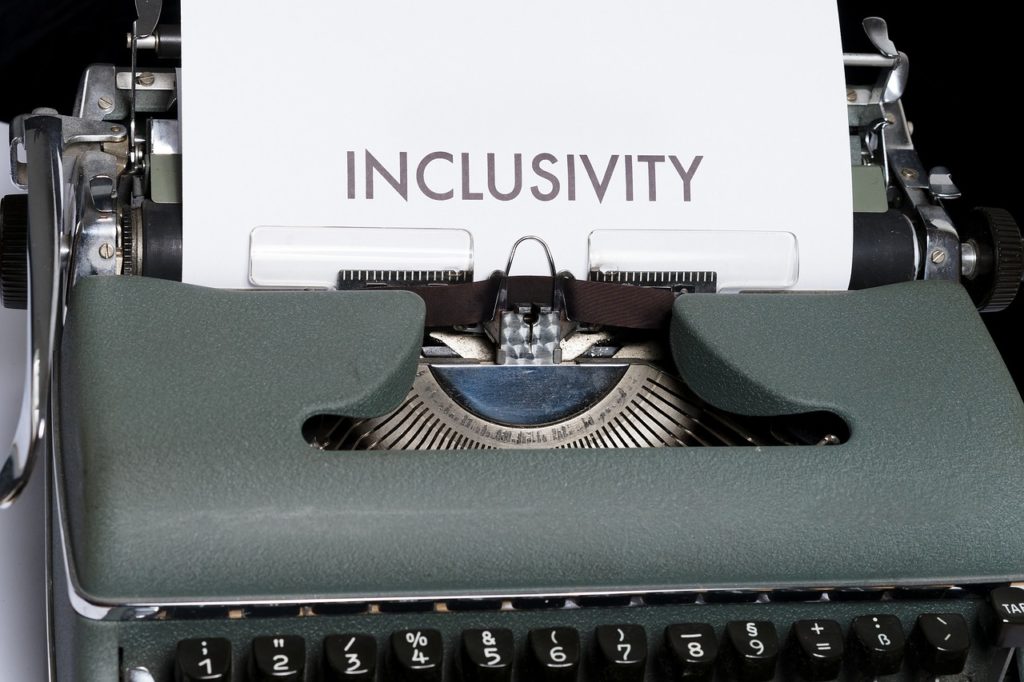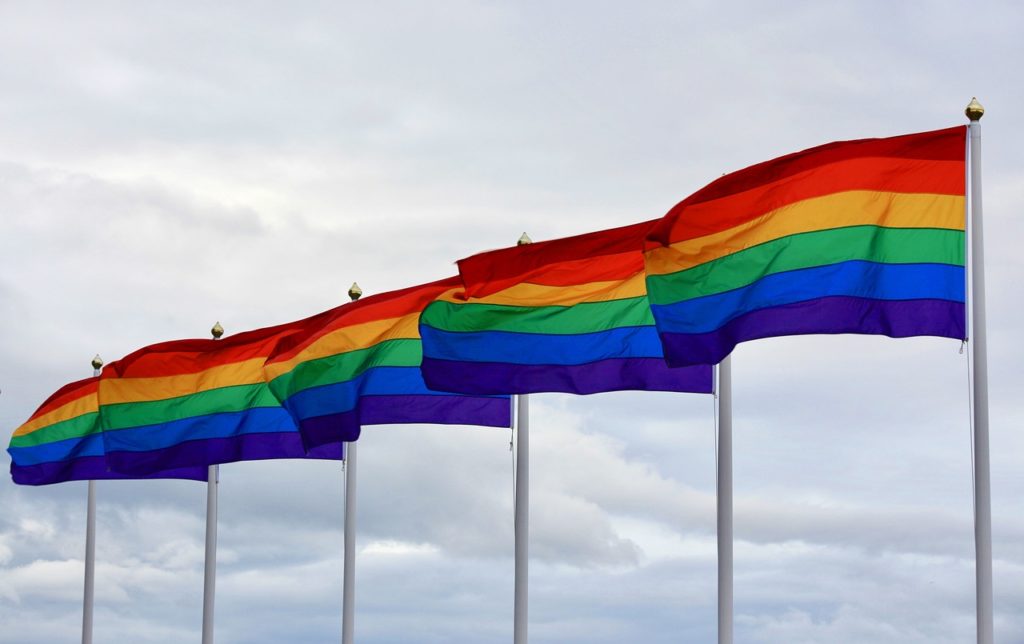Whether you are chatting informally with friends or communicating more formally through dissertation or thesis writing, your choice of words speaks volumes. It is not just the overt meanings in your language that matter, however. Using biased language can in a more subtle fashion convey judgmental or even prejudicial attitudes toward certain groups. Recognizing the harmfulness of such language, the 7th edition of the American Psychological Association (APA) editing and writing style manual specifies that we should use terminology that is free from bias. APA defines bias as “the implied or irrelevant evaluation of the group or groups” that are the subject of your writing (APA, 2020, p. 132).

Bias-free dissertation or thesis writing means that we avoid using language that perpetuates demeaning or insulting attitudes toward persons based on their “age, disability, gender, participation in research, racial or ethnic identity, sexual orientation, socioeconomic status, or some combination of these or other personal factors (e.g., marital status, immigration status, religion). Instead, authors should use affirming and inclusive language” (APA, 2020, p. 132).
Although none of us would intentionally use biased language, we may not necessarily be aware of how certain terms imply hurtful attitudes toward groups—especially when we are not members of those groups ourselves. The APA editing and writing style manual acknowledges that preferred language evolves over time. Terms that were considered acceptable 20 years ago may now be offensive.
To ensure that your writing reflects current standards, consulting with an experienced dissertation editor is a great idea. This can help you to refine your choices of language so that your writing conveys the spirit of respect and inclusivity we’re sure you intend. Keep in mind also that if you are conducting qualitative research, it is vital that you develop your interview protocol using language that your participants will appreciate.
On this topic, the APA editing and writing style manual provides guidance that is far too extensive to cover here in this article. To get you started, however, we hope that the following quick tips help with your dissertation or thesis writing endeavors!

General Tips for Implementing Bias-Free Writing
- Make sure you review your own dissertation or thesis writing; it may help to ask yourself if your language may imply any type of preconceptions about certain groups.
- Talk with individuals from self-advocacy groups about preferred terms as well as language to avoid.
- Discuss preferred terminology directly with members of specific groups if they are your dissertation participants.
- It may help to recognize that norms and preferences regarding inclusive language change over time; your writing should change accordingly.
APA Guidelines on Issues of Relevance and Specificity
When reading APA’s definition of bias earlier in this article, maybe you noticed the part about the “irrelevant evaluation” of groups (APA, 2020, p. 132). The take-home message here is that you don’t need to describe characteristics about people (e.g., your participants) that aren’t relevant to the discussion. Doing so overemphasizes a person’s group membership or label, implying that it is central to their social identity.
For example, it would be irrelevant to reference a participant’s diagnosis of bipolar disorder if your study is about online versus face-to-face learning. But, imagine that you were conducting qualitative research to explore perceptions of disability accommodations in online versus face-to-face learning. In this case, discussing your dissertation participants’ disabilities helps the reader to understand their needs for accommodation. This makes language referring to disability status relevant and therefore not biased.
Once you have thought about which terms are relevant versus irrelevant given your dissertation topic, it will help to also think about how specific your terms should be. According to the APA editing and writing style manual, you should lean toward more rather than less specific terms. For example, if your research concerns gender identity, specific terms (e.g., cisgender men, transgender men) are preferred over general terms like “men” or “people.” Another example relates to age. If your study focuses on particular age groups, specify these (e.g., 55-70 years old) rather than using broad categories like “over 55.”

Be Careful With Labels
Some of you may remember the children’s saying, “Sticks and stones may break my bones, but words will never hurt me.” Although this may function as a pithy retort on the playground, those of us who have been on the receiving end of stigmatizing labels know that words can hurt immensely. Even when used with innocent intentions, some labels can deeply wound and offend members of different groups.
Being careful with labels in dissertation and thesis writing is, therefore, strongly recommended by APA. As suggested above, consulting with group members on their preferred terminology will help you to select labels appropriately for your dissertation or thesis. In addition, here are a few tips regarding use of labels:
- Don’t use terminology in dissertation or thesis writing that suggests that the label reflects the totality of the person (e.g., terms like “the mentally ill” or “the gays”).
- Dissertation participants may prefer person-first phrasing, as this helps to emphasize a person’s humanity (e.g., saying “person with an intellectual disability” instead of “intellectually disabled person,” or saying “persons who live below the poverty level” instead of “poor people”).
- Note that identity-first language may be preferred instead of or along with person-first language, as it indicates a perception that the group status is an important aspect of the individual’s identity (e.g., referring to an “autistic student” or a “Deaf individual”).
Quick Tips: Any Group
We will now go over some quick tips for bias-free dissertation and thesis writing related to specific groups, drawn from the APA editing and writing style manual. Although specific groups have their own considerations, the following apply universally:
- When making comparisons, don’t refer to the comparison group as “the general public” or “normal,” as this suggests that the group of interest is somehow abnormal or deficient.
- Recognize that sequencing can “imply that later-mentioned groups are abnormal or deviant” (APA, 2020, p. 134). For example, referring first to White individuals or men in a sequence of groups can suggest perceived superiority or dominance of the groups listed first.

Quick Tips: Gender and Sexual Orientation
Gender is often equated with sex, but there are distinct differences between the two that are important to understand when writing your dissertation. The APA editing and writing style manual states, “Gender is a social construct and a social identity. Use the term ‘gender’ when referring to people as social groups” (2020, p. 138). On the other hand, “Sex refers to biological sex assignment; use the term ‘sex’ when the biological distinction of sex assignment (e.g., sex assigned at birth) is predominant” (APA, 2020, p. 138).
Finally, “gender identity is a component of gender that describes a person’s psychological sense of their gender” (APA, 2020, p. 138). It is important to recognize that gender identity is not synonymous with sexual orientation. If your dissertation topic touches on concepts of gender, sex, gender identity, and/or sexual orientation, it will help you enormously to review the full sections on gender and sexual orientation in the APA manual (they are extensive and very detailed). For purposes of this article, we’ll offer a few key tips:
- In older writings, it was common to use “man” or “men” as synonyms for people in general; however, we now consider this discriminatory. For purposes of dissertation or thesis writing, use gender-neutral terms like “people” rather than “men,” or “businesspersons” rather than “businessmen.”
- Language that implies that only two genders exist is also considered discriminatory, and a major change in the APA editing and writing style manual acknowledges this fact. As of the 7th edition, use of the singular “they” is preferred to options like “he/she,” as this demonstrates respect for non-binary persons. Use of the singular “they” is appropriate when referring to individuals who choose “they” as their personal pronoun; it is also appropriate when referring to individuals when you are unsure of their preferred pronoun.
- Use of terms like “birth sex” or “natal sex” can be derogatory because they suggest that “sex is an immutable characteristic without sociocultural influence” (APA, 2020, p. 139). When editing language in your dissertation, instead choose terms such as “sex assigned at birth” or “assigned sex” (APA, 2020, p. 139).
- Avoid the terms “homosexual” and “homosexuality,” as they have been associated with perceptions of pathology and other negative stereotypes; instead, choose identity-based terms such as “lesbian” or “queer people.”

Quick Tips: Disability
Disability status has been a source of stigma and exclusion for many individuals, and deficits-based terminology reflects a negative bias that has long been associated with disability. If people with disabilities are the focus of your dissertation or thesis, it will help immeasurably to learn about specific individuals’ label preferences. For general dissertation editing purposes, however, we offer the following suggestions:
- Don’t use the expression “suffers from” in relation to disability, as this implies that the disability is an affliction to be endured rather than a difference. Instead, use more accurate, descriptive language like “experiences schizophrenia” rather than “suffers from schizophrenia.”
- Also avoid other expressions that associate negativity with disability, such as “confined” (e.g., to a wheelchair, to a scooter); instead, use more accurate, descriptive language such as “uses a wheelchair.”
- Avoid insulting terms such as “crazy,” “crippled,” or “invalid”; do note, however, that some persons with disabilities use slurs or derogatory terms to self-describe. This does not extend permission to others outside of the group to use such terms.
- Use person-first and/or identity-first terms as preferred by the group or by the specific individuals who are participating in your study, if applicable.

Quick Tips: Racial and Ethnic Identity
As with previous groups we have discussed, it is important to learn the preferred identity labels for different racial and ethnic groups. Race is a term that “refers to physical differences that groups and cultures consider socially significant,” and ethnicity is a term that “refers to shared cultural characteristics such as language, ancestry, practices, and beliefs” (APA, 2020, p. 142). The APA editing and writing style guidelines are a must-read if your dissertation touches upon questions related to racial and ethnic identity, but we’ll go over a few key points:
- Be as specific as possible with category labels; for example, “Chinese American” is more specific than “Asian American.”
- As with all proper nouns, capitalize racial and ethnic group names; for example, you would use “Black” or “White” rather than the lowercased versions.
- Avoid portraying race in an essentialist manner (e.g., “the White race” or “the Black race”), as this feeds stereotyping about different groups of people.
- Referring to non-White groups as “minorities” is outdated and pejorative, as it suggests inferiority to the majority group; instead, use terms like “people of color” or “underrepresented groups.”
Quick Tips: Age
Whether your problem statement pertains specifically to age-related questions or not, you’ll definitely need to understand the APA editing and style guidelines for discussing age. At the very least, you will need to learn how to talk about age for your methods and results chapters, as age is a demographic category reported in most studies. Here are some tips to keep in mind:
- Use specific age brackets to describe participants by age in your methods chapter; avoid open-ended categories like “over 65” or “under 18.”
- Use specific terms such as “men” and “women,” rather than “males” or “females”; the APA editing and writing style manual suggests, however, that referring to dissertation participants as “males” or “females” may be appropriate when the sample includes both children and adults.
- Avoid referring to older adults as “seniors,” “the aged,” or “the elderly,” as these terms “connote a stereotype and suggest that members of the group are not part of society but rather a group apart” (APA, 2020, p. 135).

Conclusion
Most of our dissertation assistance clients are excited about the prospect of promoting positive social change through their doctoral research. In addition to your research findings, the language you use in dissertation or thesis writing makes a difference as well. Language reflects our attitudes and beliefs about one another, and it also shapes our attitudes and beliefs about each other. When you take care to choose terminology that conveys attitudes of respect and inclusivity, you can make a positive impact on readers once your study is published (imagine the thought!). The APA manual provides a wealth of information on this topic, and our dissertation editors would be happy to apply their expertise to ensure that your manuscript is up to current standards. Please get in touch any time to discuss how we can help with your dissertation!
References
American Psychological Association. (2020). Publication manual of the American Psychological Association (7th ed.). https://doi.org/10.1037/0000165-000